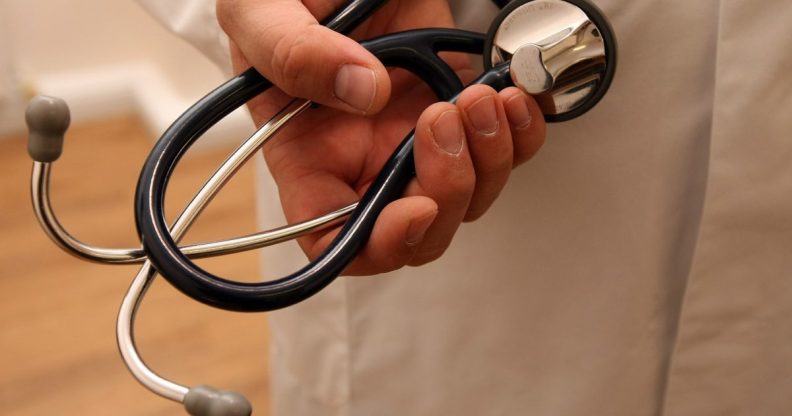Feature: The dangers of trans broken arm syndrome

Accessing healthcare is another item on the long list of things that are harder when you’re trans.
Transition-related healthcare is notorious for long-waiting lists, unnecessarily strict requirements and a lack of local services.
But general healthcare is fraught with difficulties too. Trans people are frequently subject to poor standards of care due to prejudice or plain ignorance.
Then there’s the phenomenon known as Trans Broken Arm Syndrome.
It’s when healthcare providers assume that all medical issues are a result of a person being trans. Everything – from mental health problems to, yes, broken arms.
A woman PinkNews spoke to suffered from migraines, which had a serious negative impact on her life. She said her doctor “just assumed it was some side effect of HRT, [hormone replacement therapy]” and it was several years, and a move to a new city, before a doctor diagnosed and began treating the problem.
One trans person, J, gave a long list of physical injuries, including a sprained ankle, a dislocated shoulder, broken ribs, and, of course, even a broken arm where their trans status and HRT were discussed unnecessarily, and at length.
It was all written down to be sent to their GP – which they say is “a waste of time and ink.”
J went on: “In the five minutes it takes me to grill me on gender stuff and write it all down, the orthopod has squandered a quarter of the time they’ve got to fix my broken arm, in order to waste another doctor’s time by telling her something she already knows.
“These days I keep my mouth shut. I just tell a doctor that my HRT is ‘to correct for a deficiency’ and stick rigidly to that line until they get tired of asking the question.”
Of course being trans can and does cause unique medical issues. It can effect mental health, hormones and surgery have side effects, and things like chest binding may cause physical problems.
Mentioning hormones when asked what medication you’re taking can feel like taking a gamble on a coin toss. Because it might be relevant when deciding treatment options – or it might end up getting the blame and preventing treatment altogether.
The more a person’s trans status is blamed for a person’s unrelated health problems, the less likely they are to bring it up – even when it is relevant.
J summed it up, saying: “It’s a calculated risk on our part: The 1% chance that it is relevant and you make it worse by hiding, versus the 99% chance that it’ll be used to push you out of the clinic with no diagnosis, and ending up made worse by that.
“I take that 1% risk every time, it’s safer.
“But if I didn’t have to take that risk then I wouldn’t.”
While it’s always important to be honest with healthcare providers, with attitudes as they are it is understandable than many trans people find it hard to trust medical staff. That will only change when healthcare workers are fully informed on trans issues.

